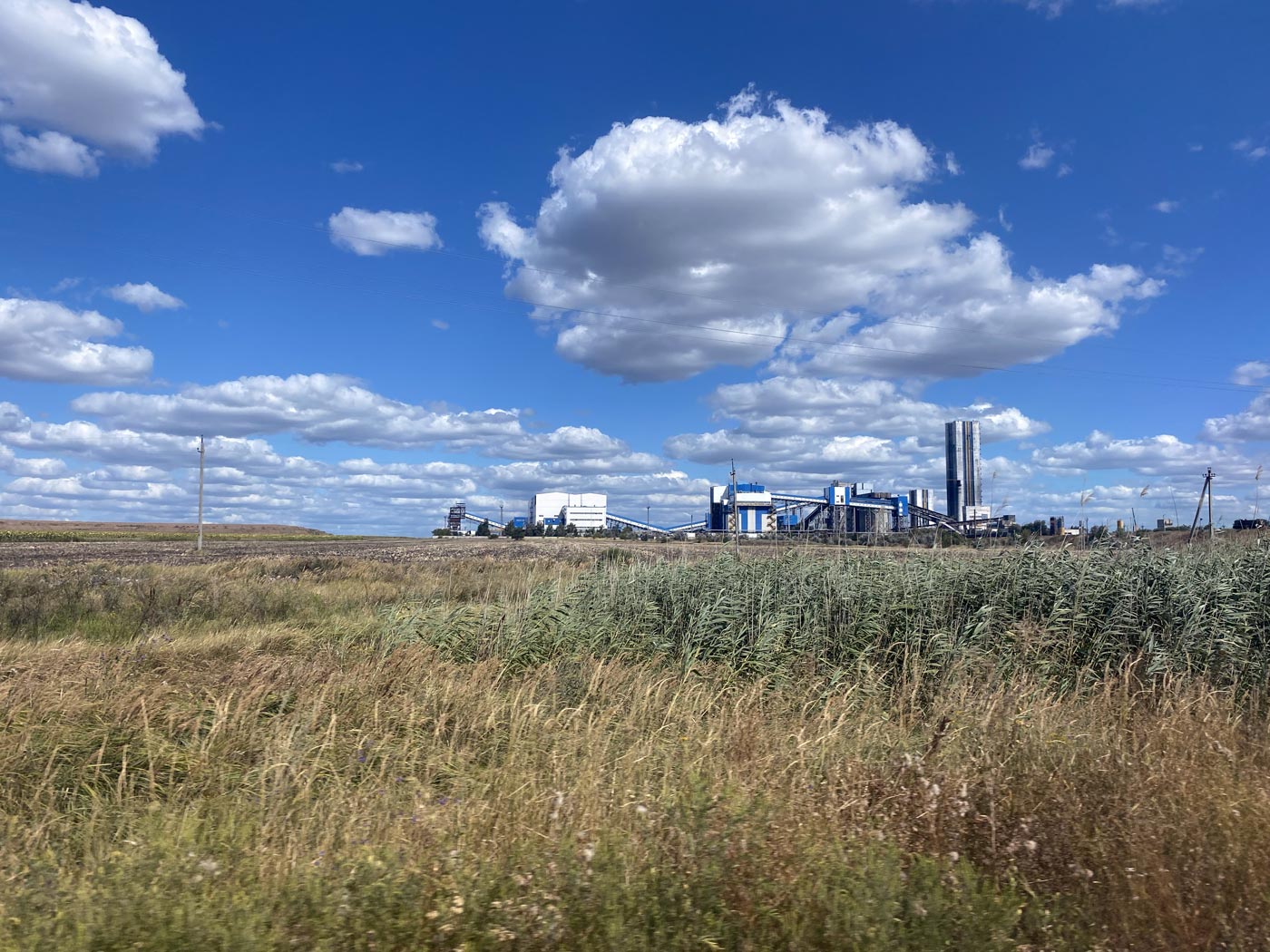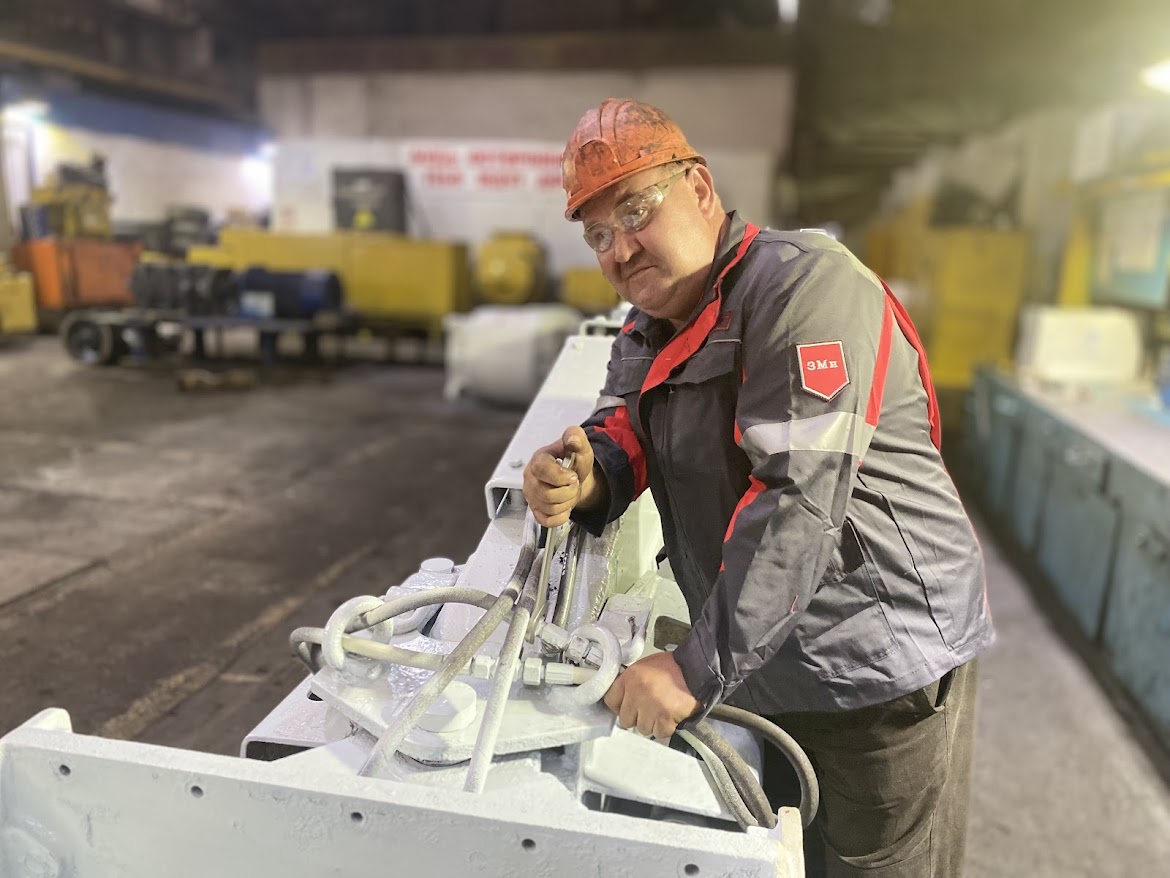The last stronghold of the coal industry in Donbas: why people keep working despite the danger
The "Pokrovske" Mine Management is perhaps the only coal enterprise currently operating in the Donetsk oblaat. Before the war, it employed around 10,000 people, producing up to 8 million tons of coal annually. The enterprise provided jobs for a fifth of the population of Pokrovsk and supplied Ukraine with high-quality coking coal, essential for metallurgy.

Now, the mine has a tough time. The front line is inevitably approaching, most people have left the city, and the number of workers has significantly decreased. Some miners have moved to settlements in the Dnipropetrovsk oblast, such as Mezhova, Ternivka, Petropavlivka, Pavlohrad, and villages near the Donetsk oblast's border. From there, they travel several hours each way to work. However, many have stayed in Pokrovsk, which frequently suffers from shelling.
Residents often live without electricity, water, or gas. The curfew lasts most of the day. All government institutions have left Pokrovsk. Chain supermarkets, banks, and logistics services are no longer operational. Medical facilities, educational institutions, and social services have also been relocated.
But the mine continues to "provide coal to the country", and with it work the determined individuals who have chosen to stay here to the last. Our article explores what keeps miners in this potentially dangerous region.
I’m staying because there’s nowhere else for us to go
Ihor Baiev moved to Pokrovsk in the early 2000s from the struggling city of Torez, which is now under the control of the so-called "DNR". The family's new life became linked to the "Pokrovske" Mine Management. At first, Ihor worked as a coal-face worker, extracting coal underground. It was a difficult job, but a well-paid one.
After retiring, he moved above ground. Now, he repairs mining equipment, specializing in machinery used in excavation and coal extraction. Before the escalation of hostilities in the region, three specialists were involved in repairing this equipment. Now, Ihor Baiev does it alone.
In peacetime, it took about two weeks to repair one such machine. First, it had to be disassembled into components, cleaned of rust and coal dust, and all parts thoroughly washed, with unsuitable components replaced. To inspect the hydraulic system, 400 liters of used oil had to be drained. Then, the surface of the tank was degreased with kerosene, and all debris was removed. Worn-out parts in all components were then carefully inspected and replaced step by step.
“There are about eight of us left in the workshop, including the management. Some are sick, others took leave to evacuate their families. My wife and I are still living in Pokrovsk because, we actually have nowhere to go. No one is waiting for us in a new place. Here, we have work and a home. Our sons, of course, urge us to leave, but we’re staying for now”, - says the miner.

The Baiev family is among those who continue to live and work in the region as long as the situation at the front allows. They don’t fall into the category of "those waiting for the russian world" since both their sons are serving in the Armed Forces of Ukraine. However, the man has long been contemplating that something needs to be done, as the situation in Pokrovsk deteriorates day by day. Even the mine management is not spared; in September, the enterprise was subjected to rocket attacks. Two people died, and two others were seriously injured.
“It happened late in the evening, and I was at home. I had to go to work the next morning. What I saw at the mine was very upsetting. There was destruction everywhere, shattered windows in several workshops, and some rooms were just gone. People were confused and frightened. But what could we do? We started cleaning up the aftermath, clearing debris, and boarding up windows with plywood. The next day, there was another attack. I was in the workshop at the time. There were two loud explosions in quick succession. We went to the shelter and stayed there for more than two hours, then went home”, - Ihor recounts.
Despite the circumstances, the mine is trying to adapt to the extreme conditions. It’s very difficult due to a severe shortage of personnel. Routes have been organized to transport workers from the Dnipropetrovsk oblast, where many have relocated. No one knows how long the mine management can hold on. Ihor says he has become accustomed to the shelling, but everyone has their own threshold for human endurance.
I wanted to keep working, but a drone nearly killed me
Liudmyla Hrybanova graduated from Donetsk National Technical University. In early April, she turned 23, and the next day, she submitted a job application to the "Pokrovske" Mine Management, where she had done her industrial training for five consecutive years.
“They hired me as an operator of automatic gas protection. My responsibilities included monitoring gas sensor readings, ventilating excavations, keeping a record of everyone working on the site, tracking their routes, and logging call numbers so that people could be found and accidents or other issues addressed if any questions arose”, - Liudmyla explains.

Her work routine continued steadily until the enemy approached Hrodivka, Liudmyla’s hometown.
“In early July, I was coming home from work when a drone almost killed me. I’ve never run so fast in my life. The drone flew over my head, and there was an explosion while I was running. A local man was killed in it. Thick bushes and fir trees saved me from the shrapnel. On July 10th, I worked the night shift for the last time, and on the 11th, I submitted my evacuation request. I resigned two months later”, - Liudmyla recalls the terrifying moments.
She didn’t want to leave her job or move away from Hrodivka, but on July 18th, the first active shelling of the settlement began. Three women were killed, and Liudmyla's home was destroyed. Her parents and younger sister survived by a miracle. Lyudmyla herself had left for Kramatorsk the day before. Drones kept disturbing the area day and night, forcing her to make the difficult decision to move to a safer place.
“At work, they thought I was exaggerating or making a bad joke, that I was taking time off for a vacation, not an evacuation. But even then, artillery was hitting Hrodivka. I couldn’t sleep peacefully at night, and health problems started. I’m currently unemployed. I’d like to go to Kryvyi Rih to work at a mine operated by our coal company. But I’m worried because the front is not far from there either, and the city is often under attack again”, - says Liudmyla.
...
Despite the war and the approaching front line, the mine has produced about 3.5 million tons of run-of-mine coal since the beginning of the year. Comparing these figures to previous years is impossible, as the enterprise operates in a semi-ruined region with limited electricity supply. People risk their lives every day.
The enemy has approached within 7 kilometers of the city. Losing the mine would have negative consequences for the entire country, as the coking coal is used for metallurgy, which produces defense products. If russia captures the "Pokrovske" Mine Management, Ukrainian metallurgists will have to start importing coal.
Olena Yermolenko, for OstroV
Photos by the author
The material was created with the participation of CFI, Agence française de développement médias, as part of the Hub Bucharest Project supported by the French Ministry of Foreign Affairs.
